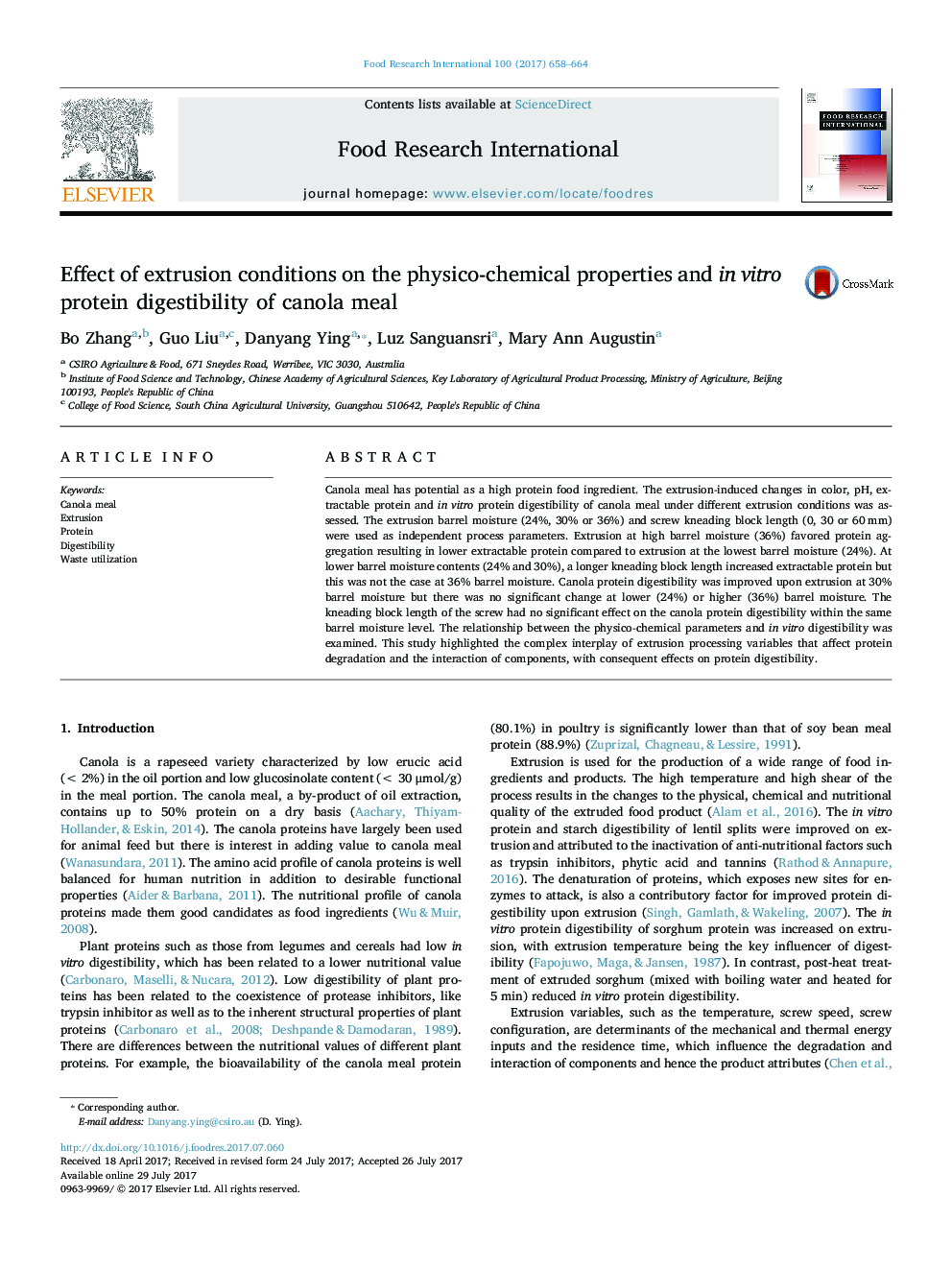| Article ID | Journal | Published Year | Pages | File Type |
|---|---|---|---|---|
| 5768019 | Food Research International | 2017 | 7 Pages |
â¢Canola meal was extruded at 3 barrel moisture and 3 screw configurations.â¢Extrusion altered physico-chemical characteristics and protein digestibility.â¢Extrusion induced protein degradation, aggregation and Maillard reaction.â¢Extrusion at 30% barrel moisture improved the canola protein digestibility.
Canola meal has potential as a high protein food ingredient. The extrusion-induced changes in color, pH, extractable protein and in vitro protein digestibility of canola meal under different extrusion conditions was assessed. The extrusion barrel moisture (24%, 30% or 36%) and screw kneading block length (0, 30 or 60Â mm) were used as independent process parameters. Extrusion at high barrel moisture (36%) favored protein aggregation resulting in lower extractable protein compared to extrusion at the lowest barrel moisture (24%). At lower barrel moisture contents (24% and 30%), a longer kneading block length increased extractable protein but this was not the case at 36% barrel moisture. Canola protein digestibility was improved upon extrusion at 30% barrel moisture but there was no significant change at lower (24%) or higher (36%) barrel moisture. The kneading block length of the screw had no significant effect on the canola protein digestibility within the same barrel moisture level. The relationship between the physico-chemical parameters and in vitro digestibility was examined. This study highlighted the complex interplay of extrusion processing variables that affect protein degradation and the interaction of components, with consequent effects on protein digestibility.
Graphical abstractDownload high-res image (139KB)Download full-size image
